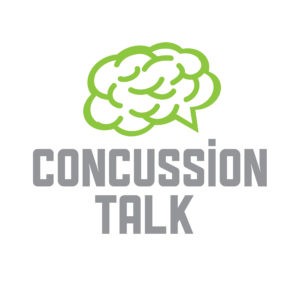On Sunday I watched the Denver Brocncos score 10 points in a little over 2 minutes to tie the Chicago Bears and then win in overtime. This is an impressive comeback, but it wouldn’t be so believably unbelievable had it not involved the Broncos and their quarterback Tim Tebow. Last week Chuck Klosterman wrote an excellent article on www.grantland.com  entitled The People Who Hate Tim Tebow and he tries to find out why Tim Tebow is so fascinating to other people and why he’s so polarizing. Klosterman inevitably talks about faith and belief. I think the reasons a nice, genuine guy is so polarizing are very similar to explaining concussions and brain injury in sports.
Tim Tebow is the Broncos quarterback and seems to lack most of the apparently ‘essential’ skills of the modern-day NFL QB. Football purists and many former players are quick to note his lack of skill, his inability to make accurate passes and his reliance on running and scrambling. He is 7-1 as a 2nd year quarterback and 1st year starter – a fantastic record for anybody. Yet there are many who not only doubt, but disregard his accomplishments, unfairly comparing him to quarterbacks with years more experience and time to develop. Even many of his supporters in football circles, quickly displace the credit to the defence. I’m not trying to give reasons to like Tebow, but I am stymied by commentators who continue to doubt whatever ‘skill’ he has. I’m even more confounded by those commentators who take obvious joy in his prospective failure. I think the reasons for this type of reaction is probably as obvious as people think and that scares them.
Klosterman makes great points about pragmatism and faith (not religious faith, although Tebow is a very religious guy). “Anyone can believe a hard fact that everyone already accepts. That’s easy. If you can see something, you don’t need faith. Faith in the seeable is meaningless.” That quote almost perfectly describes sports’ (and society’s) relationship with brain injury. It is also one of society’s traits that make living with a brain injury more uncomfortable than it needs to be. It’s been stated countless times in countless ways, ‘every brain injury is unique’. Unfortunately, only the saddest, most depressing images of brain injury are shown on TV, in movies, or written. Brain injury can present itself in many forms and explaining each different manifestation makes one injury seem like a million different injuries. Therefore understanding brain injury is very difficult and getting it across, even more so.
In sports, because of the natural reluctance to embrace new ideas that may run directly against everything taught or studied about a sport, many of the farthest reaching and drastic changes to a sport are immediately taken off the table when rule changes are discussed. So, if those are already off the table, then people making the new rules are already restricted in what they can do, thereby ensuring that the game stays more or less the same. Just as Tebow (and, a few years ago, the wildcat offence – which is still in the game and has spread to many teams) changed one of the most important aspects of football by doing things unconventionally, it would be a relief to hear football and hockey league officials actually being free to think and come up with new ideas instead of just bigger penalties. It seems very clear to me and to many people that bigger penalties aren’t going to do the two jobs asked of them. First, they’re asked to dissuade ‘bad’ hits or ‘cheap’ shots. ‘Bad’ and ‘cheap’ are in the eye of the beholder, so players making those bad hits or committing those cheap shots don’t think they are. They’re just playing aggressively, going after the ball or puck and by the time they find out that they shouldn’t make that play it’s too late, the damage has already been done. Secondly, by not changing hitting or tackling rules, bigger penalties are also asked to keep the game the same aggressive sport. But, as players see others penalized, suspended or fined for hitting/tackling aggressively, the will shy away from such collisions. In the long run, this could work, but it can’t work as both a deterrent and as a way to maintain ‘the game’.

Leave a Reply